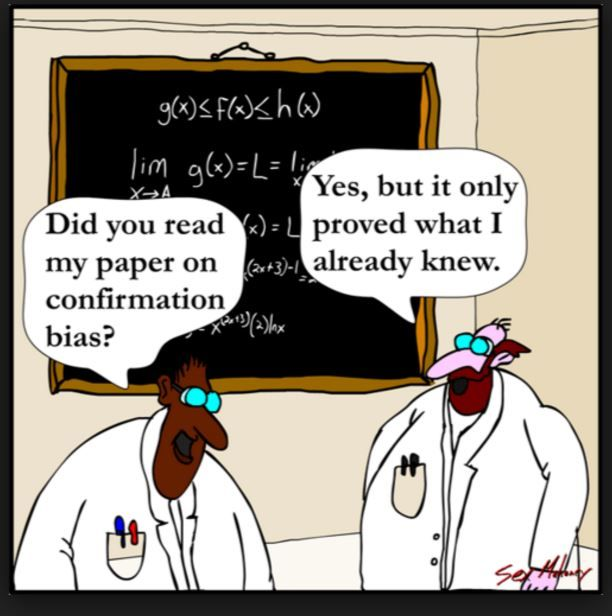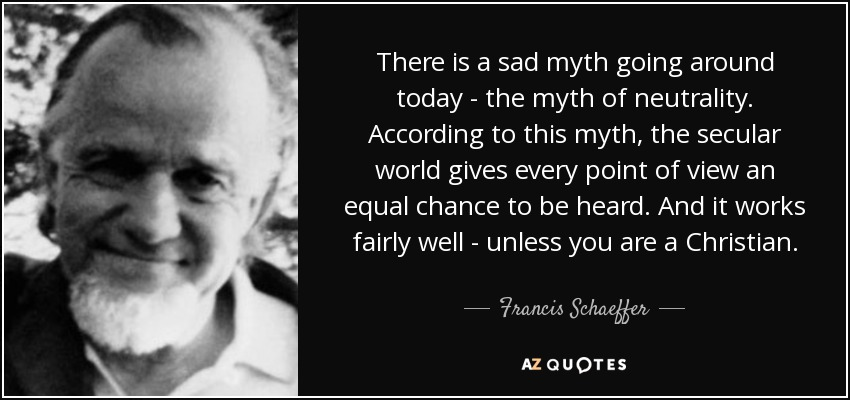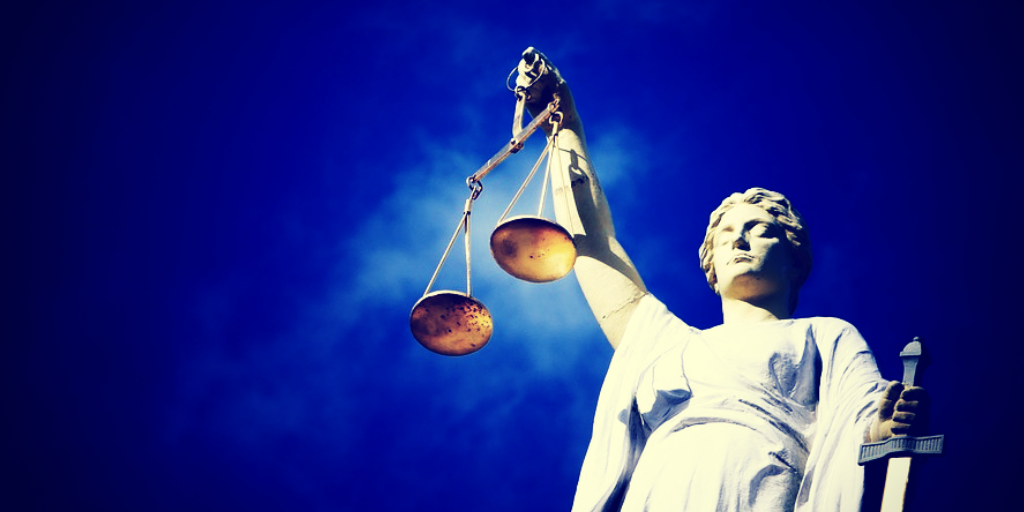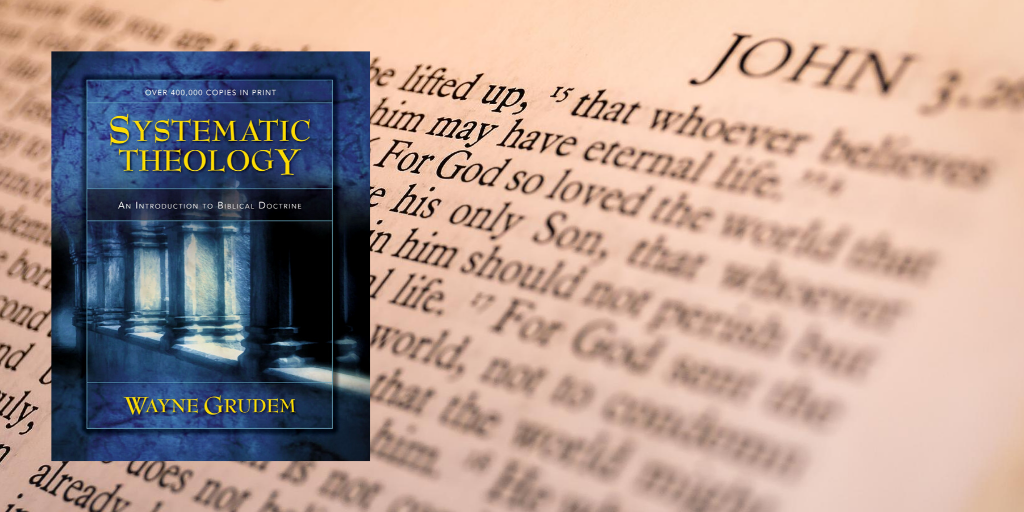Exposing the lie of “neutrality”, demonstrating how Jesus addressed it, and revealing how other Christian thinkers tackle the “myth of neutrality”.
Short Answer
The idea that a person can be neutral in relation to religion in general and Christianity in particular is wrong. Jesus taught you were either for him or against him (Matthew 12:30). It is a Satanic lie to believe you can be neutral toward Jesus.
Long Answer
Many think religious people are biased. They say Christians can’t see past their prejudices to draw a clear conclusion about important matters. The bias can be strong or weak, but it’s why non-religious people are viewed suspiciously by non-religious people.
For instance, in 2017 Senator Bernie Sanders rejected a Christian’s candidacy in the Trump Administration because of the candidate’s religious views. In response to the candidate’s exclusive claims of Christianity, the Senator said, “I would simply say, Mr. Chairman, that this nominee is really not someone who is what this country is supposed to be about…I will vote no.”
The problem for Sanders and others in the secular ruling elite is they don’t see a problem with their position: they themselves espouse a similar devotion as their Christian opponents. In fact, it’s inescapable.
In this post, I aim to expose the lie of “neutrality”, demonstrate how Jesus addressed it, and reveal how other Christian thinkers tackle the “myth of neutrality”.
Christians Are Biased…And So Are Non-Christians
In one sense, the secularists are right. Christians are biased. Christians are committed to a particular way of life that influences everything we do. Christians are committed to Jesus and are commanded to “take every thought captive to obey Christ” (2 Corinthians 10:5). So yes, Christians are biased.
In another sense, the secularists are wrong. The accusation carries an underlying assumption: that accusing secularists are not biased. Accusers are steeped in their own anti-religious bias. Believers, unbelievers, Christians, pagans, and every person on the planet regardless of race, religion, or education is biased towards their own position. Each person is committed to their own worldview as much as Christians are to theirs. Some adherents are more committed or informed than others, but bias is inescapable. Neutrality is impossible.
By way of illustration, this principle works in every moral area. In every moral dilemma, you are either for one side or you are against it. There is no third way for the thinking person.
- You are either for homosexual sex or you are against it.
- You are either for transgenderism or you are against it.
- You are either for pornography or you are against it.
- You are either for abortion or you are against it.
- You are either for adultery or you are against it.
- You are either for slavery or you are against it.
- You are either for lying or you are against it.
- You are either for theft or you are against it.
Even if you have qualifications for the moral issue, you have taken a stance. For instance, you may say “I’m pro-abortion when the life of the mother is at stake,” but that merely exposes your underlying stance: you are pro-abortion. There is no third way for any person who has considered each moral issue.
Whatever the topic – you and I are immersed in our personal biases and those biases include religious ones. Anyone familiar with the New Testament shouldn’t be surprised at this idea.

Image Credit: Pinterest
Either For Christ Or Against Him (No Third Option)
On two occasions in the Gospels, Jesus said something like, you are for me or you are against me. (Matthew 12:30, Luke 11:23). To Jesus, there was no third option.
“Whoever is not with me is against me, and whoever does not gather with me scatters.” Matthew 12:30
Either you follow him, do what he says, and let your life be reordered by his teachings OR you are against him. Be his friend or be his enemy, but you can’t be anything else. Jesus didn’t acknowledge the category of “fence-sitters”.
The same is true today. Either you are a Christian and attempt to live by Christian principles or you’re not. This is true of preachers, parishioners, politicians, pollsters, pimps, and prostitutes. Either you are for Christ or you are against him.
Someone may say they don’t know or they are unsure about Jesus. A person may be unsure about Christianity but that does not mean they are blameless. In matters of religion especially, God will hold that person accountable for their supposed-ignorance regardless of whether they’ve chosen to ‘pick a side’. If someone says they are unsure about which side they are on, they are against Christ. Full stop. Jesus assumed the accountability of his hearers: you were either on side #1 (with Christ) or side #2 (against Christ). There was no third side according to Jesus (Luke 11:23). That is still true today.
Neutrality In Religion: An Old Lie
This idea that anyone can be neutral in religion is not new. In the 19th century, Congregational pastor J. Hawes challenged the assertion when he said…
“There is no device by which the god of this world more fatally deceives the souls of unwary men, than by leading them to suppose that they can take neutral ground in regard to the character and cause of Christ.”
In the 1800s, Hawes recognized the chief architect of the World System, had so deceived the world that many thought you don’t have to make a choice about Jesus. You can ignore Christ or otherwise not commit to him and still be fine. But that was wrong. It was so wrong, Hawes called it a Satanic lie.
“What has been is what will be, and what has been done is what will be done, and there is nothing new under the sun.” (Ecclesiastes 1:9)
In the 20th century, Christian presuppositionalist RJ Rushdoony went further than Hawes…
“One of the most pernicious and evil myths to plague the human race is the myth of neutrality. It is a product of atheism and anti-Christianity, because it presupposes a cosmos of uncreated and meaningless factuality, of brute or meaningless facts. Because every atom and fact of the cosmos is then meaningless and also unrelated to every other fact, all facts are neutral.”
Rushdoony identified the “myth of neutrality” which infects every non-Christian philosophy, political theory, or other field of knowledge. He correctly diagnosed the assumptions of a supposedly neutral perspective: that there were “brute or meaningless facts.” To Rushdoony, facts are not meaningless. There is a reason for every idle word spoken and every 280 characters Tweeted. This is especially true in religion.
Whenever we express an opinion we smuggle in our personal bias. Whether it’s in the comfortable confines of your dining room or the hallowed halls of the Supreme Court, every opinion in religion or otherwise is backed by a theological bias. This is just as true for the Christian as it is for the secularist.

Conclusion: Non-Christians – Be Aware Of Your Anti-Christian Bias
Religion and “neutrality” are important topics. Religion is vital because of the eternal consequences of belief. Thinking we are “neutral” is crucial because it lulls us into thinking we are safe if we don’t commit to Christ.
But Jesus didn’t allow the luxury of a third category. We are, by nature of our humanity, committed to Christ or against him. We are biased for him or against him. Neutrality is impossible in regards to Christianity.
“And everyone who hears these words of mine and does not do them will be like a foolish man who built his house on the sand. And the rain fell, and the floods came, and the winds blew and beat against that house, and it fell, and great was the fall of it.” (Matthew 7:26-27)
Resources
- R.J. Rushdoony’s Myth of Neutrality.
- Anthoy Esolen: The Illusion of Neutrality
- Greg Bahnsen (Video: 49:24): The Myth of Neutrality








